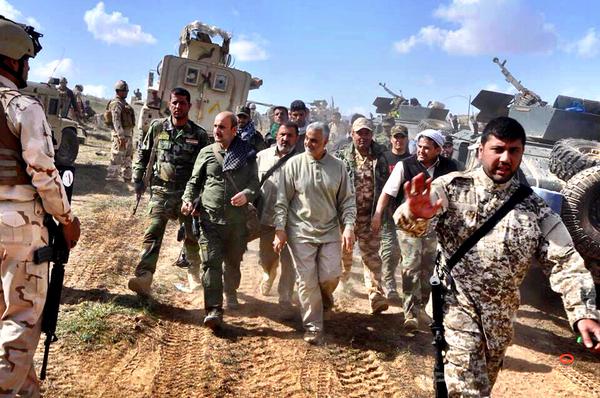What are Iranians doing in Syria?
Camelia Entekhabi-Fard/Al Arabiya/May 10/16
When I was a child in 1980, Iran and Iraq were fighting each other in one of the 20th-century’s bloodiest wars, which left almost half a million dead on both sides. Images of returning coffins, funerals and emergencies are not easy to forget, and not an experience one wants to see again. Although Iran was dragged into the war, I am sure it was painful and difficult for both sides. Today, however, the presence of Iranians in the Syrian conflict for almost three years now has no justification. It is claimed that they are military advisors, but the number of casualties is clear evidence that they are fighting.
On Saturday in the strategic town of Khan-Touman, 13 members of Iran’s Revolutionary Guard Corps (IRGC) were killed and 21 injured, according to officials. So far, more than 300 IRGC members have been killed in Syria, but Saturday’s incident marked the biggest single casualty figure. This has angered Iranians, who have been expressing disapproval of involvement in the Syrian conflict – even by volunteers – on social media. Iranians have been complaining about the cost of their country’s close ties with Syria and Lebanon.
So much money has been spent to buy support and influence, including free oil to Syria, investing in Shiite holy sites, and reconstructing southern Lebanon following the 2006 war with Israel. I am not sure that this has paid off in Lebanon or Syria. Iranians have been complaining about the cost of their country’s close ties with Syria and Lebanon. Last week in Beirut airport, I saw Syrians who were picked up from a refugee camp by an Italian charity to be taken to Rome. When I told them I am Iranian, they gazed at me silently with eyes like fireballs. What they saw when they looked at me was their destroyed homes and their destitution.
Priorities
Helping Syrians must be at the core of this disaster, rather than sacrificing to keep someone in power or guard a site. Also, solving the political deadlock in Lebanon – which for the past two years has not had a president due to competing domestic and regional factions – should prioritized. If the current ceasefire between Syria’s government and opposition continues, and the world finally feels the urge to forge a sustainable peace, there is some hope for a reduction in violence. No one can afford the cost and insecurity of this war any longer, from the Middle East to Europe. It is time for diplomacy and peace, no matter how difficult that is. Despite the Iran-Iraq war, these neighbors now have good relations. Time is the best healer of wounds – Syria is no exception.























